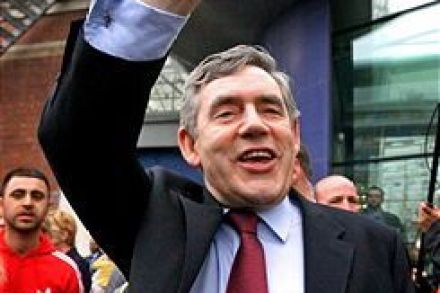Yet another Brown disaster
Word reaches me of another Brown live mic incident, breaking now. Our Dear Leader has just been at Blidworth Oaks Primary School in Mansfield, talking to eight year olds about NICE and drug rationing – boring the bejesus out of them. The teacher, sensing impending classroom unrest, tried to shut Brown up by thanking him for his contribution. Brown says: “Am I being thrown out?” Reply: “Um… Yes”. And in more ways than one.



















